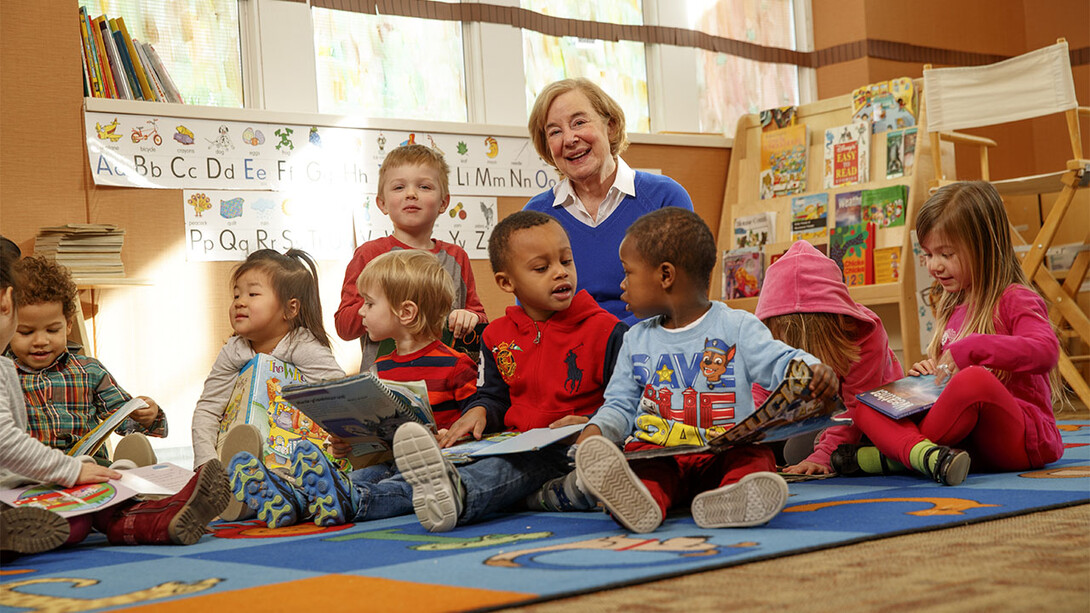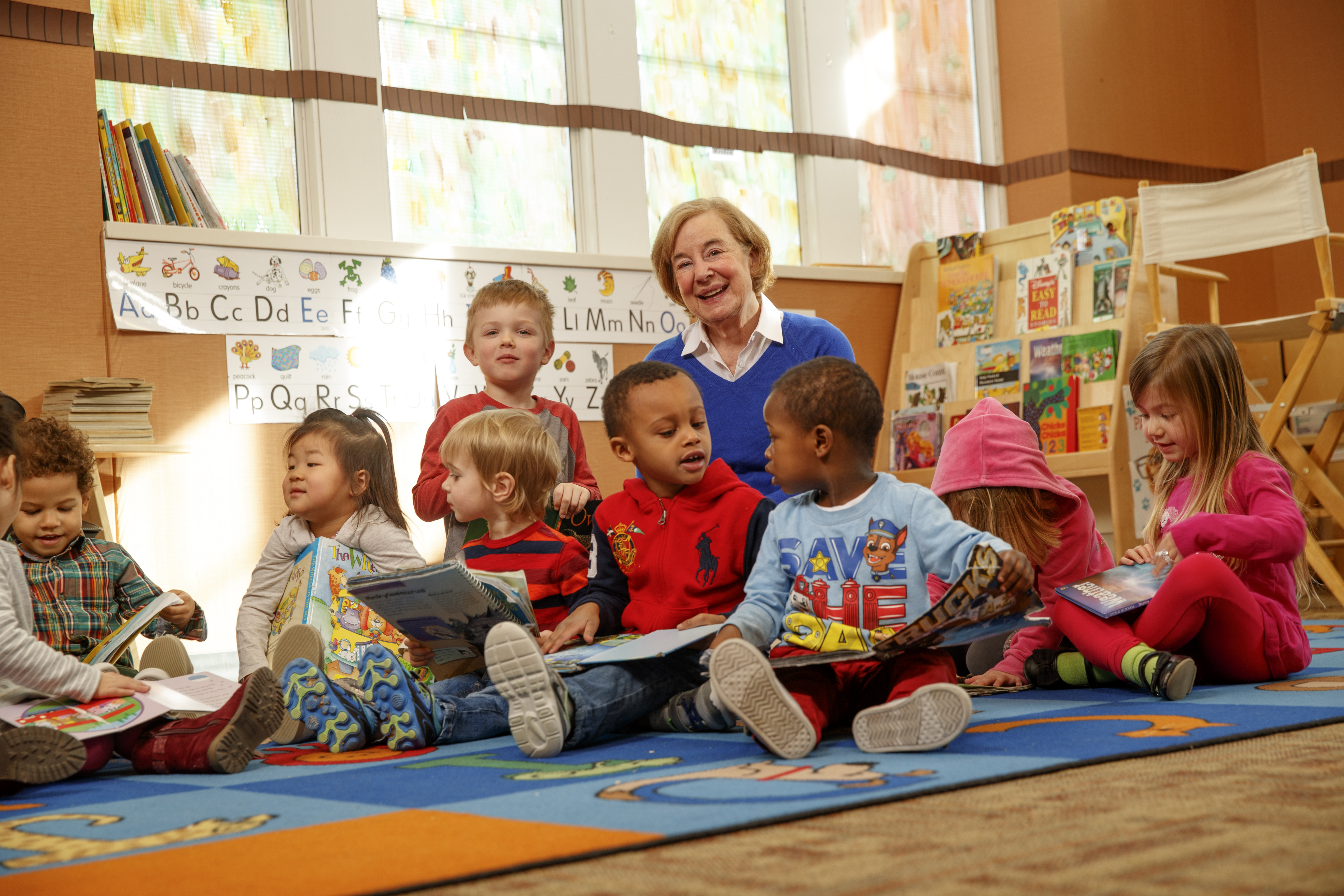
Gazing into a newborn nursery, it is difficult to imagine the new bundles of joy are focused on much more than their next nap or meal. But according to Nebraska researcher Victoria Molfese, there is more happening in these babies’ minds than meets the eye. Even the youngest babies are working hard to build complex language skills.
By listening carefully to the surrounding chatter, newborns are setting the foundation for reading success years later. Molfese’s research on newborn language development is one topic of her April 3 Nebraska Lecture at the University of Nebraska-Lincoln, “Learning to Read: Making Sense of the Evidence.” The free public lecture is at 3 p.m. in the Nebraska Union Auditorium, 1400 R St., with a reception following. Watch a live webcast here, and follow @UNLresearch or #neblecture on Twitter for live updates during the talk.
“Newborns are sensitive to some of the critical differences between speech sounds in English,” said Molfese, Chancellor’s Professor of Child, Youth and Family Studies and co-director of Nebraska’s Early Development and Learning Lab. “Looking at later language measures of these babies at 3, 5 and 8 years of age, the newborns who were better able to discriminate the speech sounds developed better language and reading skills.”
Molfese, an expert in cognitive development of infants, children and adults, said research on childhood reading has advanced rapidly during the past 30 years. The result is an ever-growing volume of information that may overwhelm parents, teachers, administrators and policymakers who deal with reading impairments at a practical level. In her lecture, Molfese will simplify the evidence and promote effective strategies for reading intervention.
“Right now, the thought is that if an intervention brings students back to reading at grade level, then their reading skills are fine,” said Molfese, associate dean for research in the College of Education and Human Sciences. “But the text children are expected to read becomes increasingly complicated as students advance in grade level and gets harder across content areas. We need to be careful with these students to see if additional intervention is needed in later grades.”
Successful interventions should be based on the critical link between reading skills and letters, sounds, phonological skills and oral language skills, Molfese said. For example, strategies should ensure that beginning readers know not just the names of the letters of the alphabet, but the sounds associated with each letter and letter combinations. This knowledge paves the way to learning phonological skills, such as syllables, rhymes and the blending of sounds. An increase in opportunities to write also can be helpful, Molfese said, because putting pen to paper reinforces the connection between letters and sounds in words and the importance of words for communication.
Molfese joined the university in 2010. She has a bachelor’s degree in psychology and a master’s degree in developmental psychology from San Francisco State University and a doctorate in psychology from Pennsylvania State University.
Her lecture is part of The Nebraska Lectures: Chancellor’s Distinguished Lecture Series, sponsored by the university’s Research Council, Office of the Chancellor and Office of Research and Economic Development, in partnership with the Osher Lifelong Learning Institute.








